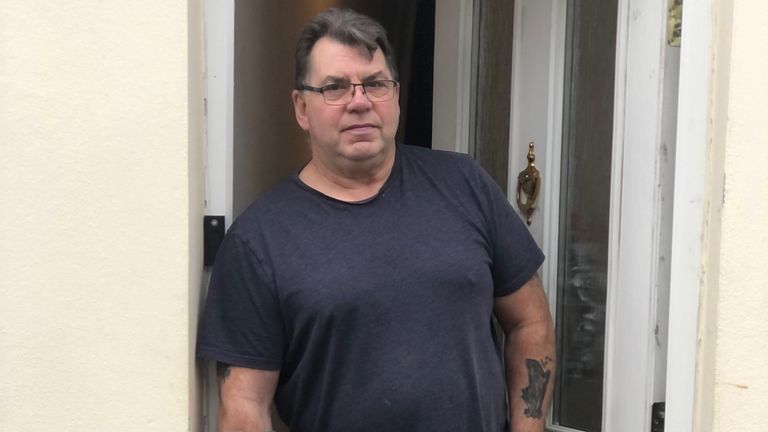Deep in the Welsh Valleys, on the outskirts of Merthyr Tydfil, is Edward Street – and our time on this steep hill of terraced houses is summed up at the first door we knock on.
"I think everybody knows somebody who has died of COVID," Joyce Lewis tells me.
She's part of a community in Wales that has spent most of this year labelled a "COVID hotspot".
"We know quite a few people who have died. It's quite frightening really. At one time the phone was going 'oh so and so has passed away' - it was a shock."
On paper, Merthyr's problem is clear: in the seven days between the 6th and 12th of December, the case rate per 100,000 was 1,032: a staggeringly high number.
As of the 16th December, it has the highest percentage of proportional positive cases of any area in Wales.
It has led to the local health board postponing non-urgent appointments and surgery, due to the "alarming increase" in COVID-19 patients - equivalent, it says, to nearly four cases being recorded every 10 minutes.
The leader of Merthyr Tydfil Council, Kevin O'Neill, is with me - he grew up on Edward Street.
"The streets are smaller, houses are smaller, communities closer, pub, shop, hospital, it's not easy to isolate yourself unless you lock yourself away in many respects," he tells me.
"The indication is people don't care and they're not applying to the regulations and it's generally too contrary."
Kevin says the community here - and in other Valley towns and rural parts of Wales - is used to being close.
"People live to together, people are very close with each other; tactile, hugging, shake hands, they go to people's houses, spend time together - that's valley's life, that's industrial life."
It's a feeling echoed by Gareth Jordan who chats to us on his doorstep.
He's been a resident of Merthyr for 20 years.
"In the valleys, everyone is close-knit. They do knock on doors, check on each other, greet each other whether it's birthdays, Christmas, always hugging, always cwtching" (Cwtch: a word that has no direct English translation, but is often referred to as a cuddle or hug - its meaning to the Welsh is deeper, that of providing a safe place).
Gareth's wife has lost a relative to COVID-19 - and he tells us he lost his job earlier this year.
"I was a heavy machine operator in demolition. We shut down in Feb. I lost my job in August, the company lost so much work they had to cut the numbers down."
At other doors we knocked on, we met those who had tested positive and were isolating.
Every household we spoke to had been affected by this devastating virus.
This is what life is like in a so-called COVID hotspot - but despite the impact, the sense of community is palpable: warm, friendly and kind.
As Kevin leaves us to attend another leaders' meeting on tackling the virus, he says this community must be given some glimmer of hope.
Subscribe to the Daily podcast on Apple Podcasts, Google Podcasts, Spotify, Spreaker
"This town doesn't give up - it's not in their nature - they're fighters - there's got to be a strategy - what does life look like post-May?
"I'm old-fashioned and believe in the carrot and stick - what are they going to get out of it?
"We need to have that so we can move forward. There needs to be some future, some rewards, it maybe ever so small, a relaxation so you can go to a restaurant, community hall; those little things are really important."






